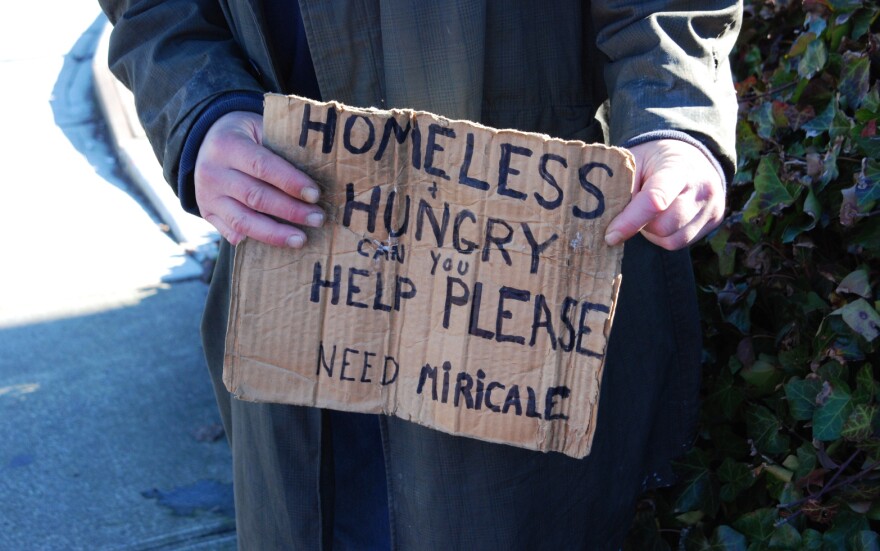Deborah Sheperis has spent more than a decade working with St. Louis Winter Outreach, a volunteer organization that helps homeless city residents find shelter on frigid nights.
The work can be stressful, even under the best circumstances, but the pandemic has added a multitude of fresh challenges.
“It wakes me up at 3 in the morning, thinking, ‘How are we going to keep our guests safe and our volunteers safe?’” Sheperis said.
Local nonprofits and volunteers who provide services for homeless people in St. Louis are preparing for what they expect will be an unusually challenging winter, as they struggle to protect residents from twin threats: bitterly cold weather and the worst pandemic in more than a century.
Though the city of St. Louis has added hundreds of new beds this year, outreach organizations are worried about the possibility of viral spread within the shelters. With the first day of winter less than seven weeks away, these groups are scrambling to rewrite existing shelter procedures in an effort to keep the virus at bay.
In a typical year, St. Louis Winter Outreach coordinates with at least 15 shelter spaces, mostly local churches. These locations open their doors on nights when the temperature dips below 20 or 25 degrees, usually housing small groups of about 20 people.
But the shelters have had to substantially reduce their capacity to keep the virus from hopscotching among residents, Sheperis said, making it impractical to try to operate smaller locations. This year, the organization has consolidated their operations at three hub locations in the city, including two large churches.
On any given night this year, St. Louis Winter Outreach will be able to house 60 to 70 people — a fraction of what it's been able to offer in years past.
Despite their reduced capacity, the shelters are still facing a volunteer shortage. St. Louis Winter Outreach has lost many older, veteran shelter workers during the pandemic who were at higher risk of complications from COVID-19, said founder Teka Childress, and they’re now working to recruit “younger, healthier volunteers.”
As nonprofits and volunteer organizations have been forced to scale back, the city of St. Louis is trying to fill the gap. City officials plan to add 170 beds by Dec. 1, including 58 single-occupancy rooms in a new location, according to a spokesperson for Mayor Lyda Krewson.
These will be in addition to the 255 beds added since the start of the pandemic, some of which are housed in hotel spaces and emergency shelters leased by the city.
St. Louis will be heading into this winter “with more overflow beds and more city beds than ever before,” the spokesperson added.
‘How do we get people there?’
Still, some outreach workers say the possibility of inadvertently spreading the coronavirus among volunteers and residents has forced them to rethink even the most basic shelter procedures.
Delanie Muenchen works with Tent Mission STL, a volunteer organization formed in response to the pandemic that provides temporary shelter and supplies for homeless city residents. Though volunteers have shuttled groups of homeless residents to emergency shelters in years past, she said, putting people in close quarters isn’t safe during a pandemic.
“Everyone's been scrambling to try to figure out what the best solution is,” said Muenchen, a graduate student at St. Louis University. “How are we going to transport people to shelters without risking our safety and their safety? Even if there are shelter beds, how do we get people there?”
The city is working with Metro Transit to provide separate warming and transfer buses this winter that can shelter residents and drop them off at shelters, according to the spokesperson for Krewson.
Having reliable transportation to shelters is essential, Sheperis said, but she worries about what will happen to the people who are visibly ill.
“By the end of December, a lot of people who come into shelter are sick and this year, we won't know if they have COVID or not,” she said. “That means you're going to have people walking up to buses in 20-degree temperatures being told they can't get on the bus. And that just really scares me.”
Follow Shahla on Twitter: @shahlafarzan



